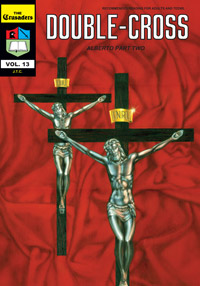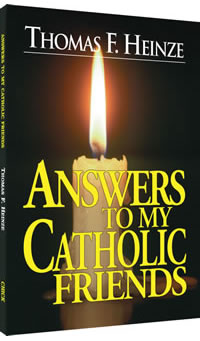Castro Welcomes Pope, Harasses Home Churches
Ecumenical Evangelicals Welcome at Mass
Pope John Paul II's visit to Cuba was seen by the world as a giant step for "religious freedom" in this last of the closed communist societies. But for bible-believers it was business as usual. Just hours before the pope's plane touched down, Castro's agents made the rounds of numerous unregistered house churches, demanded to see the householders and made them sign pledges to close the church meetings in their houses.
The scenario was familiar to the house church members who have learned to simply move the meeting to another home. Estimates run as high as 10,000 house churches nationwide with membership ranging from a dozen to several hundred. The movement began to swell in the early 1990s with meetings held at odd times, often a weekday afternoon, to avoid detection.
Cuba's religious history presents an interesting study. Before Castro, it was overwhelmingly Roman Catholic. Protestants, although in minority, stood strong against the unbiblical doctrine of Rome.
With the communist revolution, atheism became the official belief with all religion suppressed. The true church was forced underground. Unfortunately, some of these underground church leaders fell for Rome's ecumenical seduction.
Curiously, these were given freedom to become involved in the pope's visit. Non-Catholic ecumenical leaders were invited to a meeting with the pope the morning before he held mass at the Plaza of the Revolution in Havana. Leaders of non-Catholic churches who have not come to see Roman Catholicism as "another denomination" were not included.
Since 1991 there has been an official loosening of the political pressure on religion and a corresponding explosion of church activity in general. However, Bible believers are still the most persecuted. When "religious freedom" does come to Cuba, it is likely that it will be only for those who cozy up to the pope. Nevertheless, persecution has always brought revival to the true church even if it has had to go underground.
Throughout most of the history of the church, the true believers have had to worship with one eye on the door, not knowing when at what moment they might be killed by someone thinking they were doing God a service.
- See more articles on related topics:
- Catholicism
- Ecumenism
- Political Power
Other Articles from March/April 1998:
- Authorized Version No More Archaic Than Modern Versions Or Even The Newspapers
- A Chick Tract Filled the Gap
- Graham Agrees with Rome on Salvation
of Unreached
- Irish President Takes Protestant Communion Stirs Rome's Ire
- Go Where the Lost Are!
- A Message From Jack Chick March 1998
- Salvation - Muslim Style
- It Pays to Read Chick Tracts to Children
- Is It Hard To Be Saved?
- Court Upholds Student's Tract Passing Rights
More on Catholicism:
Products of Interest:
-

Smokescreens
96 pages
Jack Chick shows that the ecumenical movement isn’t designed to bring all Christians into unity. That’s just a smokescreen, hiding the Vatican’s real intent, to stamp out religious freedom and rule the world. -

Alberto
32-PAGE, FULL COLOR COMIC BOOK - Alberto Series Part 1 - Here is how Alberto, as a Jesuit, helped destroy churches and ministries. But as he read the Scriptures, he saw that Catholicism couldn’t save.
-

Double-Cross
32-PAGE, FULL COLOR COMIC BOOK - Alberto Series Part 2 - After his salvation, Alberto is a hunted man. No Jesuit can leave his order alive! He reveals the infiltration of Protestant organizations, and warns of false ‘brethren’ in our midst.
-

Answers To My Catholic Friends
64 pages
A gentle witness you can give Catholics that deals with venerating images, purgatory, where popes go when they die, and more.



